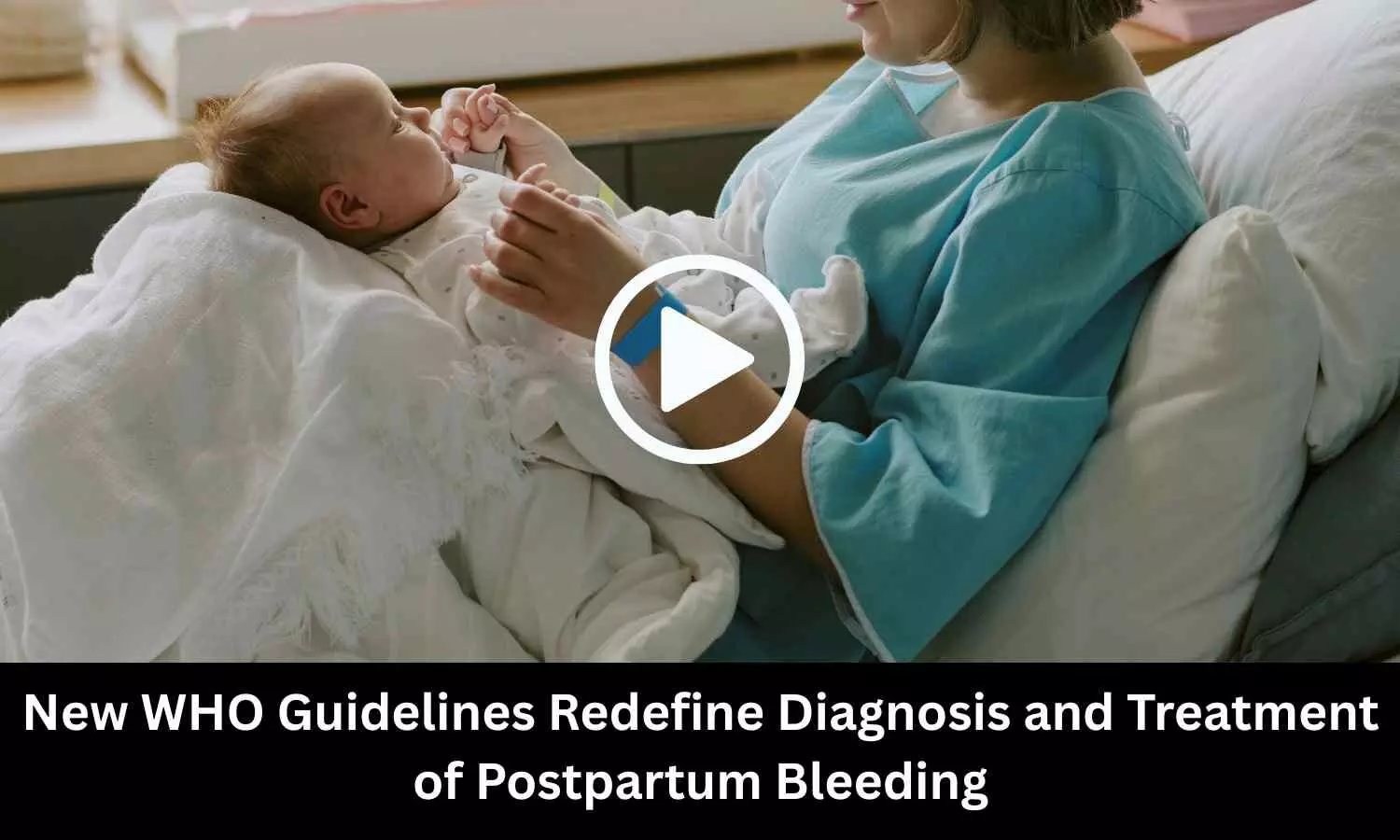New WHO Guidelines Redefine Diagnosis and Treatment of Postpartum Bleeding
- byDoctor News Daily Team
- 11 October, 2025
- 0 Comments
- 0 Mins

New global guidelines were released to transform the prevention, diagnosis, and treatment ofpostpartum hemorrhage(PPH) by theWorld Health Organization(WHO), the International Federation of Gynecology and Obstetrics (FIGO), and the International Confederation of Midwives (ICM). Based on the largest study to date, published in The Lancet, these guidelines introduce new objective diagnostic criteria and recommend the E-MOTIVE bundle, an immediate care protocol designed to save lives and reduce globalmaternal healthdisparities. Postpartum hemorrhage, or excessive bleeding after childbirth, is a leading cause of maternal mortality, particularly in low- and lower-middle-income countries. The study assessed how well various clinical signs could predict maternal death or severe complications. Researchers concluded that “measured blood loss below the conventional threshold, combined with abnormal haemodynamic signs, accurately predicts women at risk of death or life-threatening complications from postpartum bleeding.” They emphasized that treatment should begin even at 300 mL of blood loss, especially when symptoms such as high heart rate or low blood pressure are present. The updated guidelines call for the immediate application of the E-MOTIVE bundle which includes uterine massage, oxytocic drugs, tranexamic acid, intravenous fluids, genital tract examination, and escalation of care if bleeding persists. In rare, severe cases, surgery or blood transfusion may be required to stabilize the woman’s condition. These comprehensive guidelines, which include 51 recommendations, are supported by new training resources for health workers and policy guides for implementation. “The guidelines are designed to maximize impact where the burden is highest and resources are most limited — helping ensure more women survive childbirth and can return home safely to their families,” said Jeremy Farrar, WHO assistant director-general. Marking the urgency of the issue, October 5 will now be observed as World PPH Day, reinforcing the commitment to ending preventable maternal deaths and achieving global health equity. Reference:Prognostic accuracy of clinical markers of postpartum bleeding in predicting maternal mortality or severe morbidity: a WHO individual participant data meta-analysis, Gallos, IoannisBOROVAC-PINHEIRO, Anderson et al. The Lancet, Volume 0, Issue 0
Disclaimer: This website is designed for healthcare professionals and serves solely for informational purposes.
The content provided should not be interpreted as medical advice, diagnosis, treatment recommendations, prescriptions, or endorsements of specific medical practices. It is not a replacement for professional medical consultation or the expertise of a licensed healthcare provider.
Given the ever-evolving nature of medical science, we strive to keep our information accurate and up to date. However, we do not guarantee the completeness or accuracy of the content.
If you come across any inconsistencies, please reach out to us at
admin@doctornewsdaily.com.
We do not support or endorse medical opinions, treatments, or recommendations that contradict the advice of qualified healthcare professionals.
By using this website, you agree to our
Terms of Use,
Privacy Policy, and
Advertisement Policy.
For further details, please review our
Full Disclaimer.
Recent News
Lower ketone levels and improved exercise capacity...
- 01 November, 2025
Citrus Flavonoids effective nutritional adjunct to...
- 01 November, 2025
Daily kimchi intake linked to reduced BMI and bell...
- 01 November, 2025
Daily Newsletter
Get all the top stories from Blogs to keep track.


0 Comments
Post a comment
No comments yet. Be the first to comment!